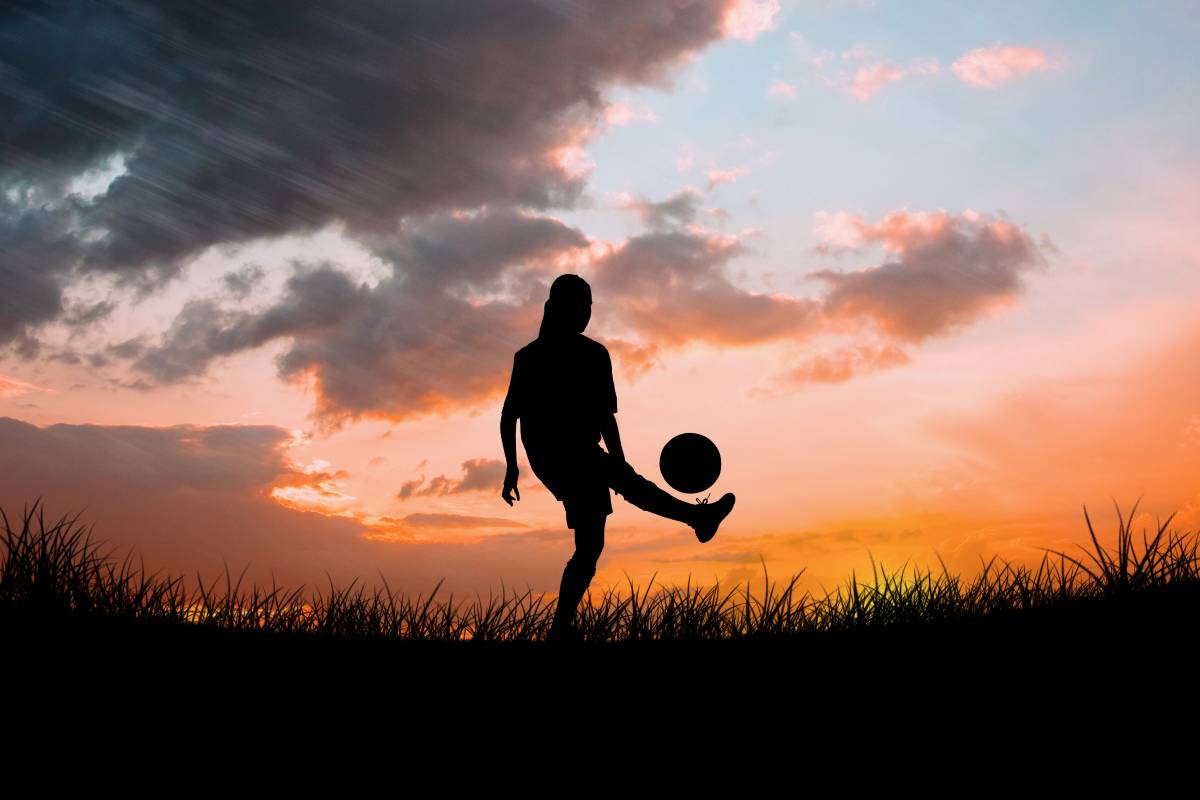Aspiring footballer was told 'just deal with it' by coaches as ACL injuries took mental health toll
Sports physiotherapists and their colleagues must adopt more of a holistic approach by helping to monitor and maintain athletes’ mental health, according to an article published on 22 March by the British Journal of Sports Medicine.
In a paper appearing in the ‘Patients Voices’ section of the journal, Nicole Whitehill, who is studying sport rehabilitation at Queen Margaret University Edinburgh, outlines the ‘emotional rollercoaster’ she experienced as she began to realise that her fledgling football career was likely to be curtailed by a series of injuries and operations.
Ms Whitehill writes: ‘This emotional burden affects both the athletes and their support systems. The recognition of mental strain highlights the significance of a comprehensive recovery. This includes both mental and physical recovery, as well as counselling, supportive networks and effective coping strategies.
‘The impact on mental health serves as a stark reminder of the importance of providing comprehensive care for an athlete’s well-being during a difficult recovery process. While clinicians should prioritise athletes’ physical recovery, they must also consider psychological demands and social stress.’
Ms Whitehill says that she reached out to her coaches, asking for one-to-one meetings to discuss the mental health challenges she faced, but was repeatedly baulked.
'Just deal with it'
‘Unfortunately, these efforts left me disappointed, as attempts to convey the emotional toll of my injuries, notably the sense of isolation from teammates, often resulted in dismissive remarks like, “That’s what happens when you get injured; you'll just need to deal with it.”’
Ms Whitehill said the lack of help pushed her into a ‘dark place’, which ‘could have been avoided if coaches had received proper education on comprehensively supporting athletes’.
Because of their strong attachment to sports, athletes’ mental health issues are sometimes viewed as weakness rather than legitimate concerns [Nicole Whitehill]
Societal stigma still an issue
Ms Whitehill suggests that it is important to understand how aspects of an athlete's physical, mental and emotional wellbeing interact, and that this is 'critical' if effective recovery strategies are to be developed.
'Athlete mental health advocacy, combined with attentive listening and appropriate actions from medical professionals, plays an important role in cultivating a supportive sports culture throughout the demanding journey of long-term injury rehabilitation,' she notes.
‘Beacon of hope’
And she praises the ‘compassionate’ member of her medical team who acted as a ‘beacon of hope’ in her path to recovery by offering support. Family members also became ‘pillars of support’, she notes.
However, many athletes dealing with long-term injuries face ‘societal stigma’ relating to mental health issues – a factor that is ‘deeply ingrained in the competitive and resilient nature of sports’, Ms Whitehill says.
Currently working towards becoming a sports rehabilitator, I support a more thorough approach to athlete well-being by encouraging medical professionals and sports staff to give mental health more serious thoughts
‘Because of their strong attachment to sports, athletes’ mental health issues are sometimes viewed as weakness rather than legitimate concerns. This, combined with isolation from teammates and limited access to mental health resources, makes athletes hesitant to discuss their difficulties openly.’
Ms Whitehill adds: ‘Currently working towards becoming a sports rehabilitator, I support a more thorough approach to athlete well-being by encouraging medical professionals and sports staff to give mental health more serious thoughts.’
Excerpt from Ms Whitehill's article
'Simply put, dealing with long-term injuries is difficult for athletes. It entails spending a significant amount of time on the sidelines, undergoing extensive rehabilitation and dealing with mental health issues that frequently go unnoticed.
'I have first-hand knowledge of this struggle, having suffered from multiple anterior cruciate ligament (ACL) ruptures throughout my football career, beginning at the age of 14.
'At the age of 22, I had undergone three ACL reconstructions, two with meniscal and articular cartilage repairs and one with internal plate removal and lateral tenodesis, and a double osteotomy.
'While physically reconstructing me, these experiences have also had a profound impact on my mental health, highlighting the hidden difficulties that come with longer-term and recurring injuries.'
To read the full version of Ms Whitehill’s article – titled Enduring the unseen battle: navigating the mental toll of long-term sports injuries – click
Author: I A McMillanShare it with















